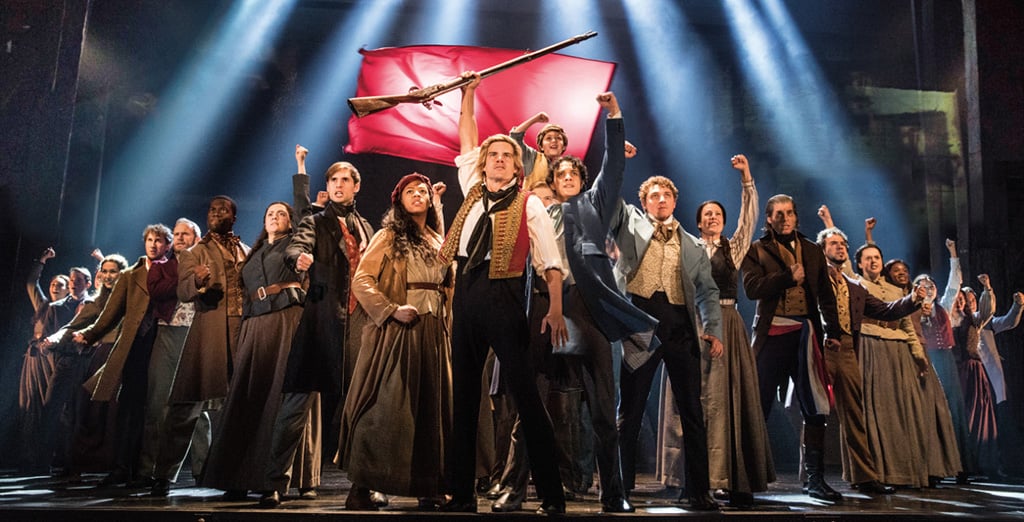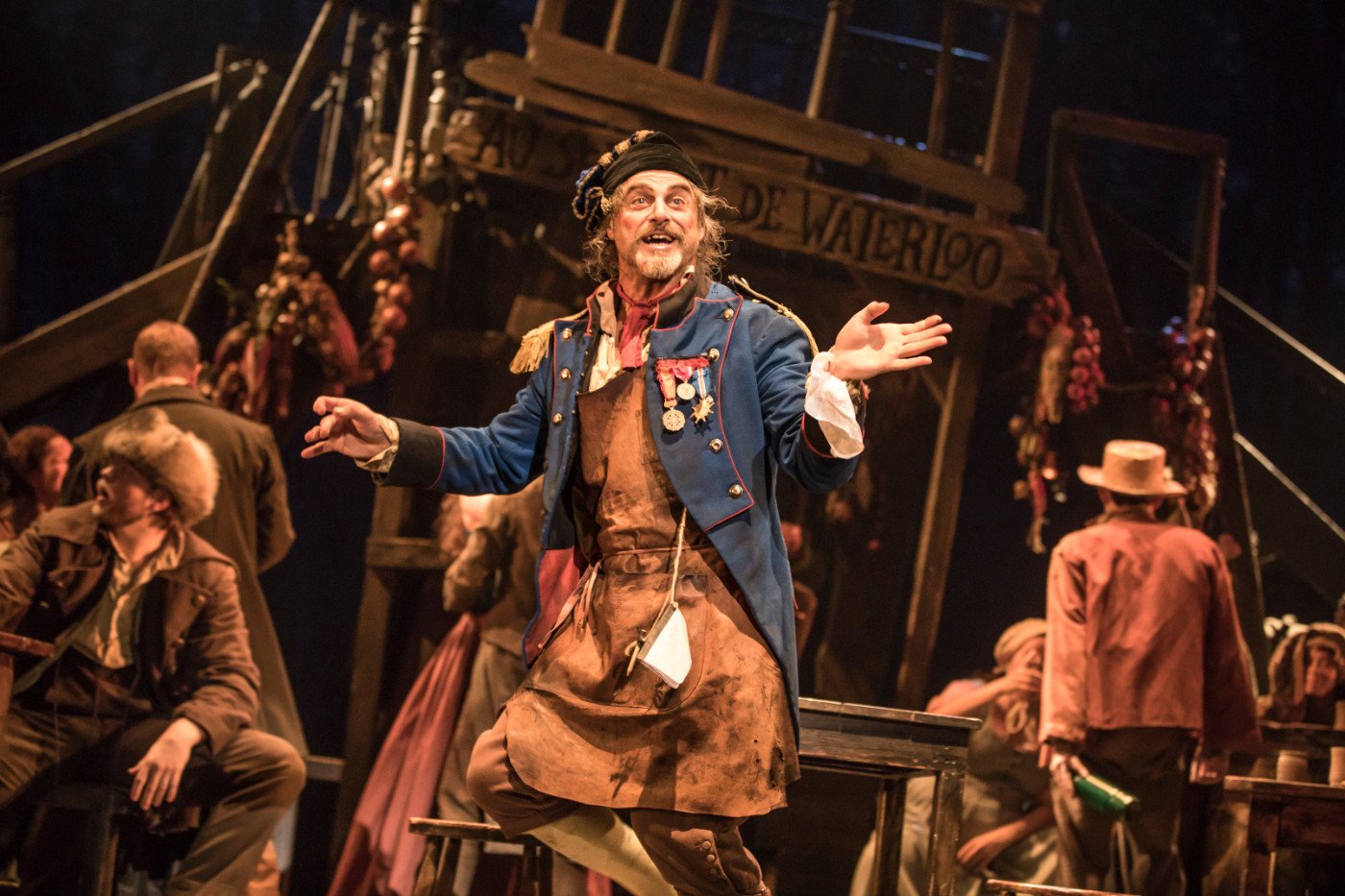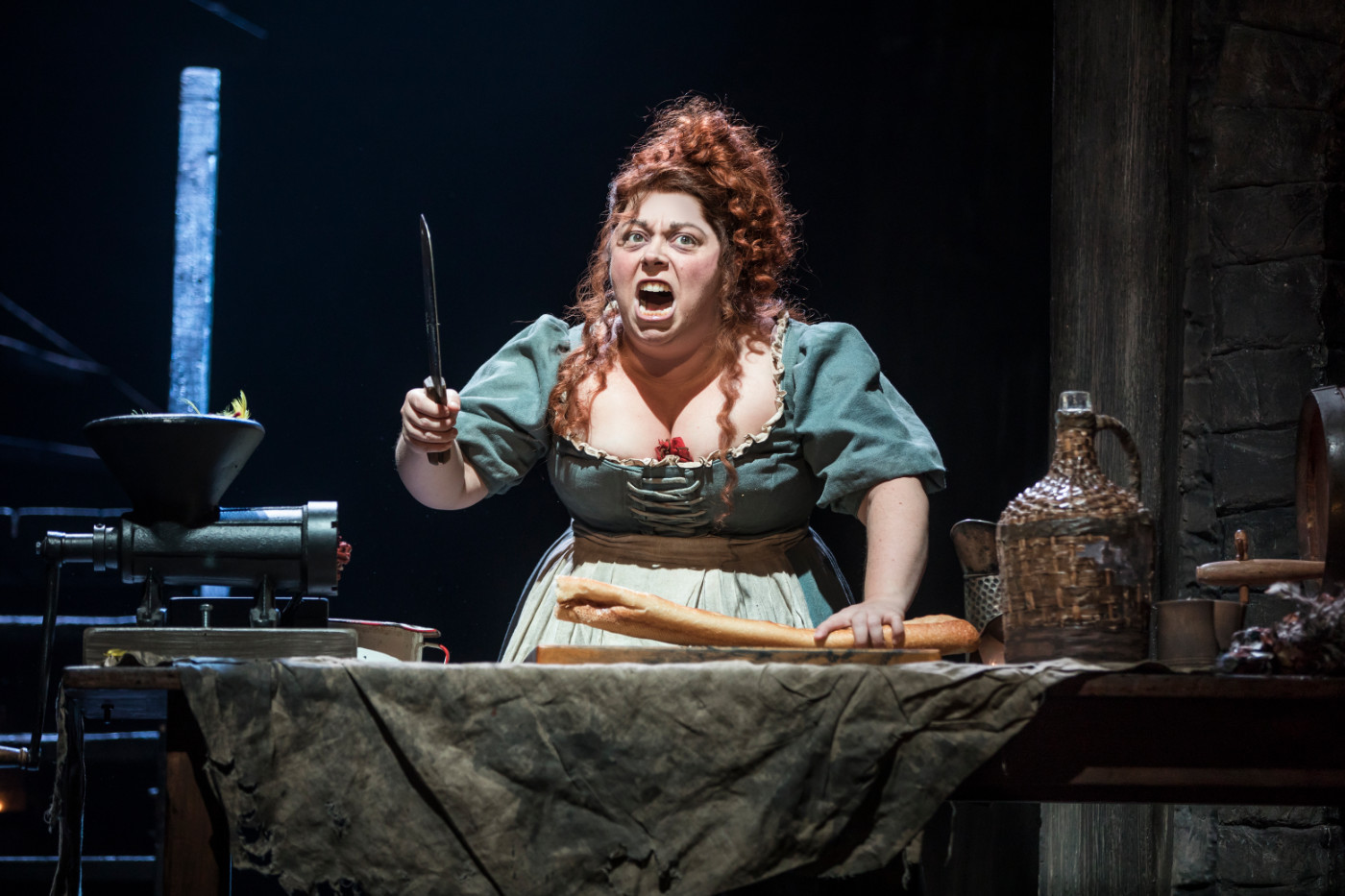
Photo: Matthew Murphy
At the Walton Arts Center this week, the show onstage now through Sunday (June 23) asks us to deal with a wide-range list of issues during its three-hour run time. We must grapple with the idea of poverty, of distrust of government, of impending war, of the way society treats women and of the merits of criminal justice reform. We must also grapple with a world where children die via gun violence.
We are of course talking about early 1800s France and the show “Les Miserables,” onstage now through Sunday at the downtown Fayetteville venue. The enduring show, based on a novel by French author Victor Hugo, has enjoyed a tremendously successful and resilient life. It’s among the longest-running Broadway shows of all time, and ranks high on the list of longest-running West End shows, too. The musical won eight Tony Awards immediately after its Broadway debut in 1987 and was adapted into a 2012 film version starring Hugh Jackman, Russell Crowe and Anne Hathaway that netted millions and won a share of screen awards. It is a musical theater classic by all definitions of that term.
The touring production of this show – the title of which translates to “the miserable ones” – is a dark, emotional affair. And not just because of the drama and death and despair. The stage aesthetic is nearly grayscale, with a set marked by muted lights and dark corners. We see the actors leading each scene because of spotlights directed on them, but everyone and everything on the fringes are in the shadows. I’m reminded of some of the criticism directed at “Game of Thrones” for its lack of physical light.
As for those fringes, they’re important. Our central characters live outside of the spotlight and in destitute and depraved times. Even those who appear well-off are not what they seem. That’s certainly the case for the business owner and mayor who we come to learn is a convict who has shirked his parole. That man, Jean Valjean, spends his life under constant threat of capture from the relentless police inspector Javert.
But their cat and mouse game is far from the only thing happening. Factory worker Fantine is thrown to the streets after the discovery of her child and her refusal to accept the factory foreman’s advances. French students, like Marius, pledge to bring a reckoning to French leadership, even if it means paying with their life. And the keepers of the town’s inn (and the keepers of Fantine’s child, Cosette), Thenardier and Madame Thenardier, supplement their living by keeping the jewelry of the patrons who get too drunk at their establishment.
That’s a lot, admittedly. But “Les Mis” has never attempted to operate at small scale. And at three hours in length, you should be prepared for the long haul.

Photo: Matthew Murphy
Even so, I felt some of the evening’s proceedings felt rushed, particularly in the first 30 minutes of the show. And that’s not only because the show kicked off promptly at 7 p.m. without the standard pre-show introduction by Walton Arts Center staff members. I strongly advise you to be in your seats early, as this one starts moving.
In particular, it felt to me as if everyone was operating at an advanced tempo. Words were hard to hear, and we flashed between scenes. I’m not sure if that was due a literal tempo advancement in terms of the interchange with the live orchestra, or a refusal to linger on emotive moments, such as Fantine’s big solo number, “I Dreamed a Dream,” one of the musical’s most recognizable songs.
Whatever the source of this aggressive flow early in the night, I didn’t have the same feeling in the second act. There, we spend lots of time mourning the recently departed, of which there are plenty to choose from. “Les Mis” has a pretty high body count. In particular, we linger on the death of Eponine, played here by Paige Smallwood. I liked some of her other numbers and actions less, but she really knocked out her big solo, “On My Own,” to kick off the second half of the show.

Photo: Matthew Murphy
Each of main characters have their onstage moments. Valjean (played by Nick Cartell) debates whether he should reveal himself or let an innocent man take his prison term. Javert (Josh Davis) must wrestle with the idea of mercy after Valjean spares his life, even though Javert has done nothing but pursue him. And Marius (Joshua Grosso) must confront the sacrifices of his friends as he notices the “Empty Chairs and Empty Tables” they won’t be coming back to. “Les Mis” requires a rangy approach to songs, which sometimes soar and sometimes ask for near tears from its presenter (and from the audience in solidarity). It’s a lot to ask, and the cast was almost always up to the task. I thought Grosso in particular nailed the ups and downs without crossing the line.
“Les Miserables” is a musical that teeters on many edges.
Perhaps chief among them is the edge of death, via a whole host of causes common to early 1830s France – violence, consumption (now known as tuberculosis) or the rushing water of the river Seine.
It also borders on being too maudlin, too twee, or too much for one musical to thrust on us. But no one has ever accused “Les Mis” of playing it small. It’s a big production, with big ideas and big topics.
And that’s a reason it remains one of the biggest draws in musical theater.

What: “Les Miserables”
When: Through June 23
Where: Walton Arts Center, Fayetteville
Cost: Starting at $46
Tickets: 479-443-5600 or waltonartscenter.org

